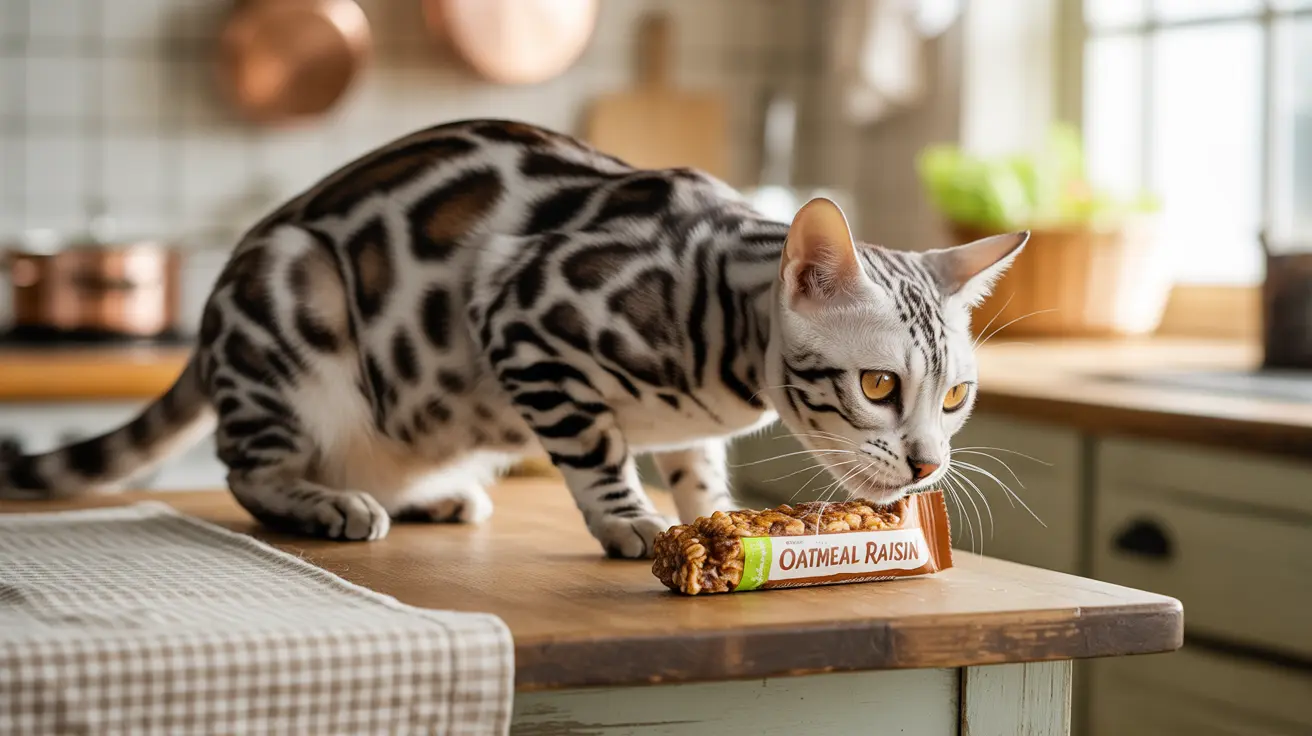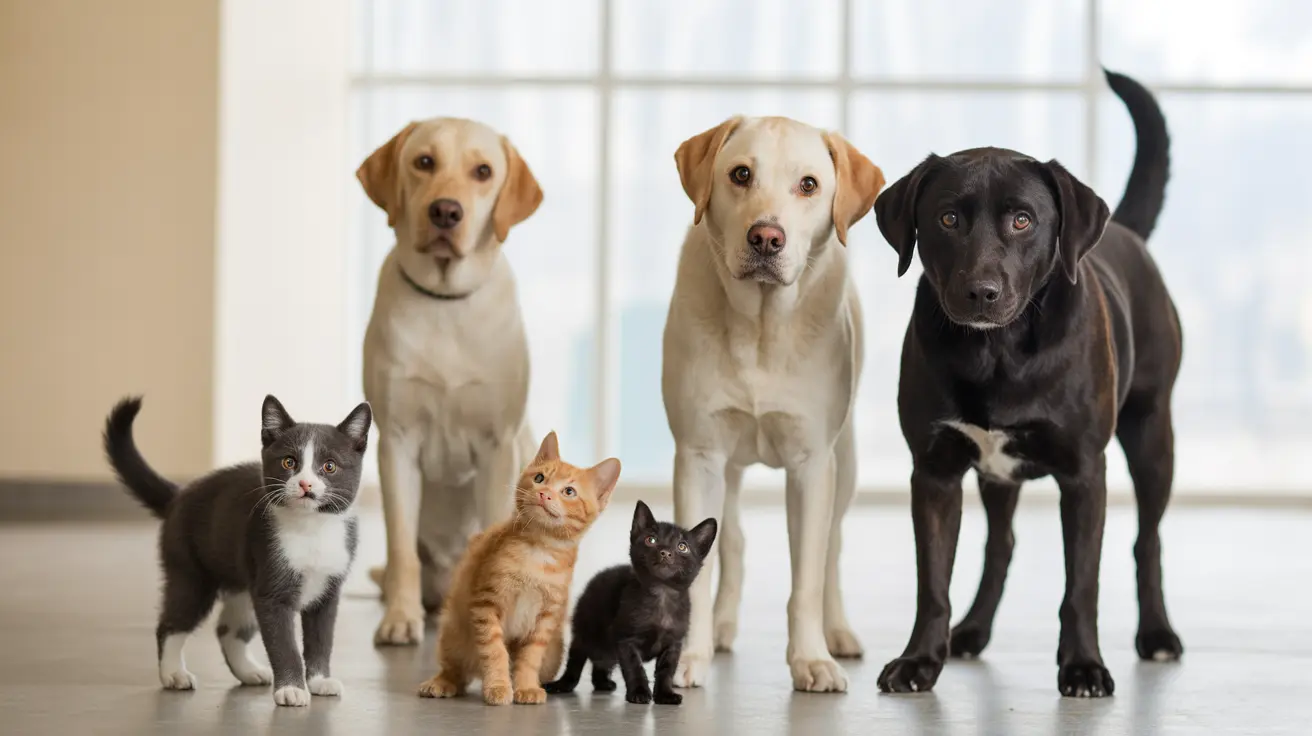If you've ever caught your cat eyeing your breakfast granola bar, you might wonder if sharing a bite is safe. As a responsible pet owner, it's crucial to understand that granola bars are not recommended for cats and can potentially be dangerous to their health.
While cats may show interest in human snacks, their digestive systems and nutritional needs are vastly different from ours. Let's explore why granola bars should stay off your cat's menu and what alternatives you can offer instead.
Why Granola Bars Are Unsafe for Cats
Cats are obligate carnivores, meaning they require a diet primarily consisting of meat-based proteins. Their bodies aren't designed to process the ingredients commonly found in granola bars, and many of these ingredients can be harmful or even toxic.
Common Dangerous Ingredients
Most granola bars contain multiple ingredients that pose serious risks to cats:
- Chocolate (toxic, containing theobromine and caffeine)
- Raisins and dried fruits (can cause kidney failure)
- Nuts (choking hazard and potential allergic reactions)
- Xylitol (artificial sweetener that's highly toxic)
- High sugar content (can lead to obesity and diabetes)
- Artificial additives and preservatives
Health Risks of Feeding Cats Granola Bars
Even small amounts of granola bars can cause various health issues in cats:
- Immediate digestive upset (vomiting and diarrhea)
- Allergic reactions
- Potential poisoning from toxic ingredients
- Long-term metabolic problems
- Dental issues from sticky ingredients
- Nutritional imbalances
Emergency Signs to Watch For
If your cat has consumed a granola bar, watch for these symptoms:
- Excessive vomiting or diarrhea
- Lethargy or weakness
- Tremors or seizures
- Loss of appetite
- Difficulty breathing
- Unusual behavior changes
What to Do If Your Cat Eats a Granola Bar
Take immediate action if your cat consumes any part of a granola bar:
- Check the ingredients list
- Save the wrapper for reference
- Contact your veterinarian or pet poison control
- Monitor your cat closely
- Don't induce vomiting without professional guidance
Safe Treat Alternatives for Cats
Instead of granola bars, offer these healthy treats:
- Commercial cat treats formulated for felines
- Small pieces of cooked lean meat
- Freeze-dried meat treats
- Cat grass (for plant-loving cats)
- Special catnip treats
Frequently Asked Questions
Can cats safely eat granola bars or any foods containing oats?
While plain oats aren't toxic to cats, granola bars are not safe due to other ingredients they contain. Cats lack the digestive enzymes to properly process grains, and there's no nutritional benefit for them.
What are the toxic ingredients in granola bars that can harm cats?
The most dangerous ingredients include chocolate, raisins, xylitol (artificial sweetener), certain nuts, and high amounts of sugar. Even small amounts of these ingredients can cause serious health issues.
What symptoms indicate my cat ate a harmful granola bar and needs veterinary care?
Watch for vomiting, diarrhea, lethargy, tremors, seizures, difficulty breathing, or unusual behavior changes. If you notice any of these symptoms, seek immediate veterinary care.
How much granola or granola bar is safe for cats, if any at all?
No amount of granola bar is considered safe for cats. Even plain granola offers no nutritional benefit and could cause digestive issues or lead to obesity.
What are healthier treat alternatives for cats instead of granola bars?
Healthy alternatives include commercial cat treats, small pieces of cooked lean meat, freeze-dried meat treats, and specialized cat treats formulated for feline nutrition.
Conclusion
While it might be tempting to share your snacks with your feline friend, granola bars should never be given to cats. The risks far outweigh any potential enjoyment your cat might get from these human treats. Stick to veterinarian-approved cat treats and foods to keep your pet safe and healthy.






